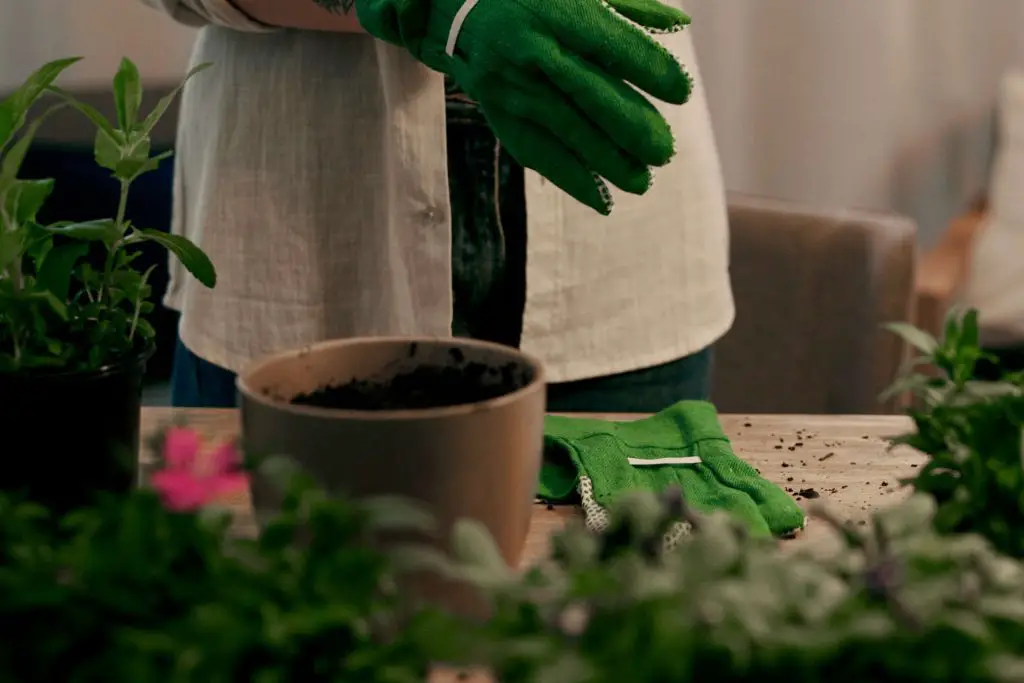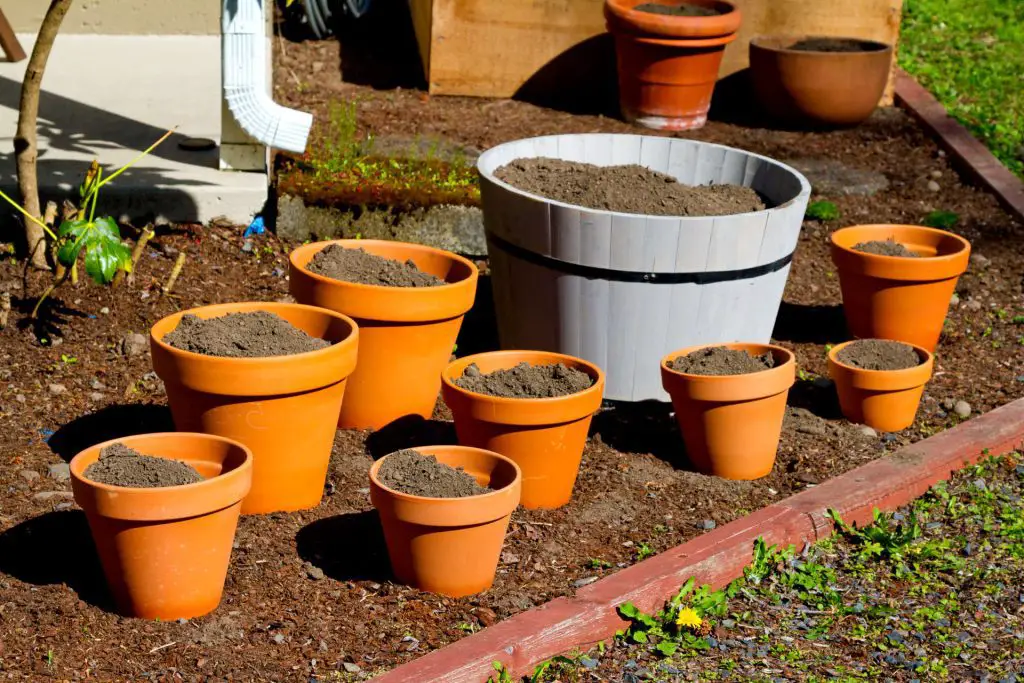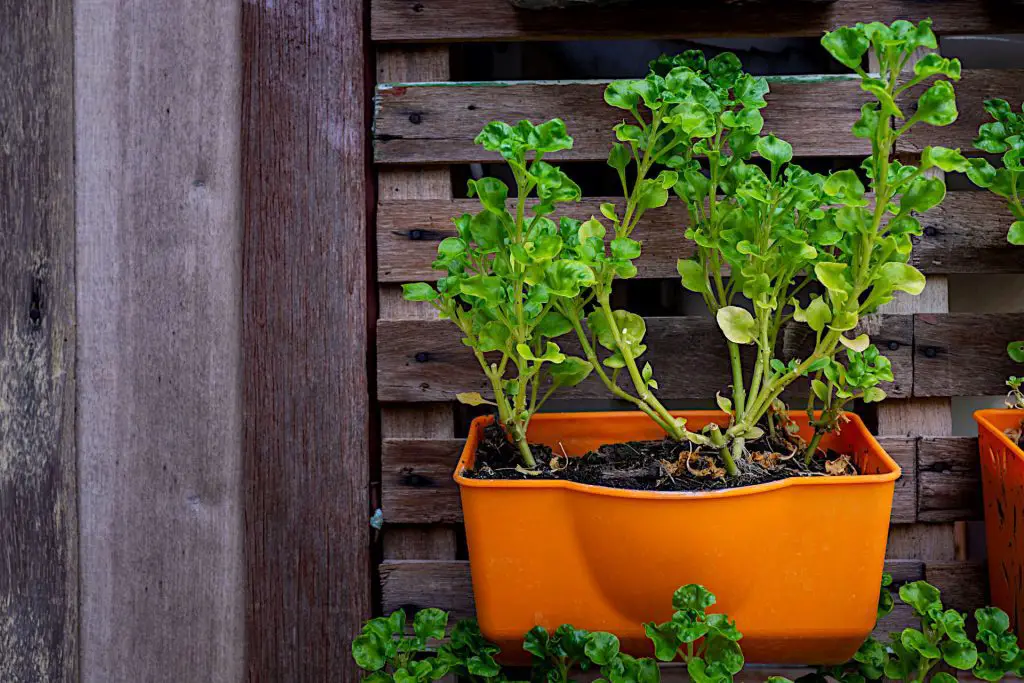Refreshing Compost in Permanent Pots: The Secret to Thriving Potted Plants in Your Garden
You probably have several permanent pots carefully arranged or dotted around your garden. Winter provides a good opportunity to refresh the compost in these permanent pots to ensure the plants continue to thrive.
Refreshing compost in permanent pots is a simple process that can help to ensure that your plants have access to a steady supply of nutrients.
We will look at how to refresh your compost efficiently and then discuss at greater length some of the reasons why this is important and also when you should not refresh the compost.
Step-by-Step Guide to Refreshing Compost in Permanent Pots

Here’s how to do it:
- Begin by removing any dead or dying plants from the pots. These plants can harbor pests and diseases that could harm your other plants, so removing them as soon as possible is important.
- Next, use a garden fork or trowel to loosen the soil in the pot. This will help to aerate the soil and allow water and nutrients to reach the roots of your plants more easily.
- Once the soil is loosened, it’s time to add some new compost. You can either make your own compost at home or purchase it from a gardening center. If you’re using homemade compost, be sure to let it age for at least a few months before using it to ensure that it is fully decomposed.
- Add the compost to the pot, using enough to increase the soil level by about an inch or two.
- Once the compost is added, mix the garden fork or trowel into the soil. This will help to distribute the nutrients evenly throughout the pot.
- Finally, water the plants thoroughly to help the compost settle into place and provide moisture for the roots.
By regularly refreshing the compost in your permanent pots, you can help ensure that your plants have access to the nutrients they need to grow and thrive.
How Often to Refresh Compost
It is recommended to refresh the compost in permanent pots every 6-12 months. This frequency depends on the type of plants being grown, the size of the pot, and the climate conditions in which they are grown. For example, if you are growing plants that have high nutrient needs, you may need to refresh the compost more frequently. On the other hand, if you are growing plants that are more tolerant of poor soil conditions, you may be able to refresh the compost less often.
Benefits of Refreshing Compost

Refreshing compost in permanent pots can greatly benefit the health and growth of your plants. By adding fresh compost, you are supplying your plants with a steady supply of essential nutrients, such as nitrogen, phosphorus, and potassium.
Additionally, the organic matter in compost helps to improve the soil structure, making it more porous and allowing for better water and air penetration to the roots. This can lead to stronger root systems and more vigorous plant growth. Furthermore, by removing dead or dying plants and mixing the compost into the soil, you are also helping to break up compacted soil and eliminate any pests or disease that may be present.
Potential Downsides of Refreshing Compost
While refreshing compost in permanent pots can be beneficial, it is important to be mindful of the potential downsides. Over-fertilizing plants can lead to excess nitrogen and other nutrients, which can harm the plants. Additionally, if pests or diseases are present in the new compost, they can be introduced to the pot and potentially harm your plants.
To avoid these issues, it is important to use fully decomposed compost, and to mix it in with the existing soil thoroughly. Additionally, it is important to monitor the plants for any signs of over-fertilization or pest/disease issues after refreshing the compost.
Checking if The Compost Needs to Be Refreshed

There are several signs to look for to determine if the compost in your permanent pots needs to be refreshed. One indication is if the plants are not growing as vigorously as they once did or showing signs of nutrient deficiency such as yellowing leaves.
Another indication is if the soil in the pot has become compacted and water is not penetrating the roots as easily. Additionally, if you notice increased pests or disease in the pot, it may be time to refresh the compost. If you are unsure if the compost needs to be refreshed, it’s always a good idea to consult with a gardening expert. They can help you determine if it’s time to refresh the compost and what steps you should take to do so.
Our Experience
Refreshing compost in your permanent pots is a simple process. However, from our experience, you will be surprised how often the process gets overlooked or forgotten. Suddenly you notice that the plants in your pots are beginning to struggle. This can often be misunderstood as under or over-watering or under-watering when the plants lack nitrogen and other nutrients.
A good way to remember to refresh your pots is to have a gardening calendar or even use your calendar app on your phone to set a reminder for the tasks to accomplish for the month.
